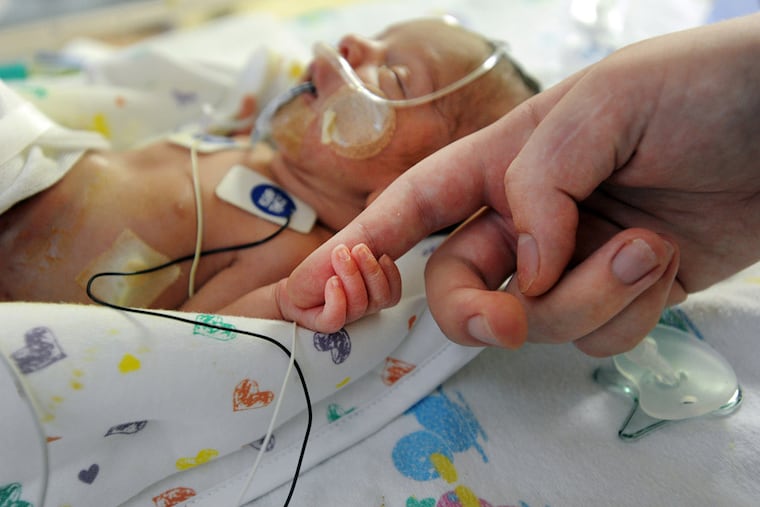An artificial womb for preemies? Philly company gets $50 million to pursue
Vitara Biomedical’s signature technology, invented by researchers at Children’s Hospital of Philadelphia, aims to serve as an alternative to incubators currently used for premature babies.

A biomedical company based in Center City has raised $50 million to continue its development of a technology that uses a fluid environment to mimic the womb to help babies born too early.
Vitara Biomedical’s signature technology, invented by researchers at Children’s Hospital of Philadelphia, aims to serve as an alternative to incubators currently used for premature babies. It describes its artificial womb as a “comforting and protective environment for premature infants to continue to naturally develop.”
Although the technology has not yet been clinically studied in humans, the company recently announced it had raised $50 million, led by investment company Sands Capital in Arlington, Va., and including Google Ventures, Google’s venture capital firm.
Vitara also has a new CEO: Kim Rodriguez, who brings more than 20 years of experience in the field, most recently as CEO of BrainCheck, a company that provides tools for brain health.
According to the World Health Organization, more than 13 million babies — equivalent to 1 in 10 worldwide — were born prematurely in 2020. The year before, nearly 1 million newborns died as a result of prematurity.
The risk of premature birth is higher in the U.S. than in most other developed countries.
A number of interventions exist to babies born too early, including incubators, as well as using caffeine for breathing problems and air pressure to keep the lungs open. Still, preemies can experience a host of complications, ranging from lung issues, vision loss, and cerebral palsy.
In 2017, researchers led by Alan Flake, a pediatric and fetal surgeon at CHOP, published a scientific paper describing an “extrauterine system” that aims to reproduce the environment of the womb. Lambs born extremely prematurely were placed in “biobags” filled with circulating amniotic fluid and nutrients. The lambs’ bodies and organs appeared to grow and develop normally.
Since then, Flake and his colleagues have continued to publish follow-up studies on the technology, which showed that fetal lambs can live and grow in the artificial womb for up to 28 days without harm.
Flake is listed as the medical adviser and coinventor of Vitara’s technology, along with Marcus Davey, a coauthor on the 2017 paper and vice president of preclinical research at Vitara.
The company said it plans to use the new round of financing to further its goal of testing the technology in human preemies.